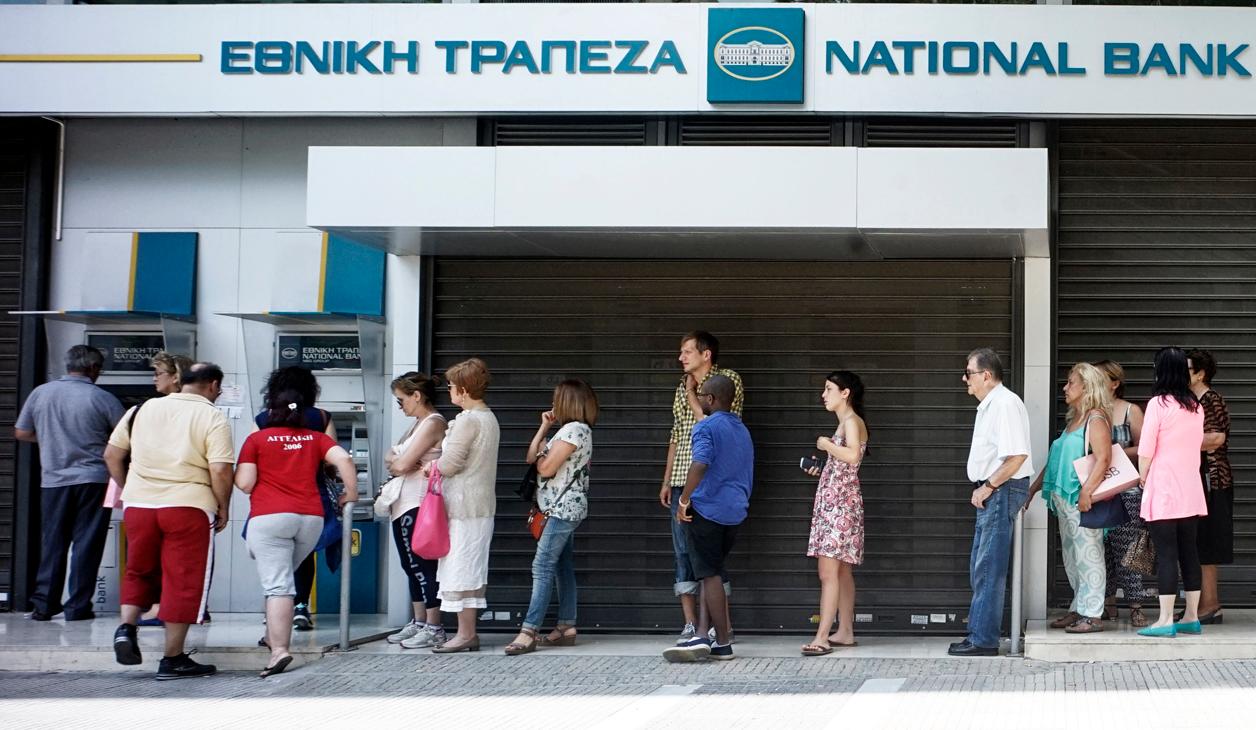This chart shows how Greece’s last bailout money was spent
Greeks line up in front of the National Bank to withdraw cash from ATMs. Greece is on the brink of defaulting on billions of euros of debt.
Update: Late Tuesday, Greece missed its big IMF payment as expected.
Greece became the first advanced country to miss a debt payment to the International Monetary Fund Tuesday night. Everybody's pretty worried about what could happen next.
The country had until midnight Greek time to pay the IMF $1.8 billion, and skipped it.
It also turns out even a last-minute effort by Greek Prime Minister Alexis Tsipras to get an extension on Greece's bailout fell flat.
Greek banks have been shut down to try to prevent a collapse of the country's financial system. Panicked citizens are withdrawing as much cash as possible from ATMs, and have been limited to a daily withdrawal of 60 euros, or about $67.
It’s a difficult moment for Greece — and what happens next in the Mediterranean country could have consequences for the rest of us. Many are asking: Could other debt-laden countries follow its path?
The Greek public will be voting Sunday on whether to accept tough, cost-cutting conditions from the country’s leading creditors. Writing for Little Atoms, journalist Yiannis Baboulias breaks down the choice that Greeks will be faced with:
"The Yes camp say that the alternative is leaving the euro and disaster, while No supporters feel they cannot back a document that would mean more austerity, tax hikes and job and pensions cuts, in a country that is already on its knees."
If Greece leaves the euro zone, some fear that it could have damaging ripple effects across the global economy. But for Greece, even accepting the terms of its lenders, would still mean being saddled with “unsustainable” debt. The Guardian on June 30 reported that even after recommended reforms, debt would sit at 118 percent of GDP by 2030.
In order to understand how Greeks feel now, we’ll need to rewind back to the country’s original bailout. Back in 2010 and 2012, the country received 240 billion euros in bailout money. But how was it spent? According to the Guardian, less than 10 percent actually went to the government.
The biggest chunk of it, however, went back to the banks that initially lent Greece money before the 2008 crash — and that program has ultimately led to a 25 percent dip in its GDP.
Here’s a breakdown of how the bailout was spent:
It’s unclear whether or not leaving the European Union will solve Greece’s woes, but it’s easy to see why the country is at a crossroads.
Our coverage reaches millions each week, but only a small fraction of listeners contribute to sustain our program. We still need 224 more people to donate $100 or $10/monthly to unlock our $67,000 match. Will you help us get there today?
